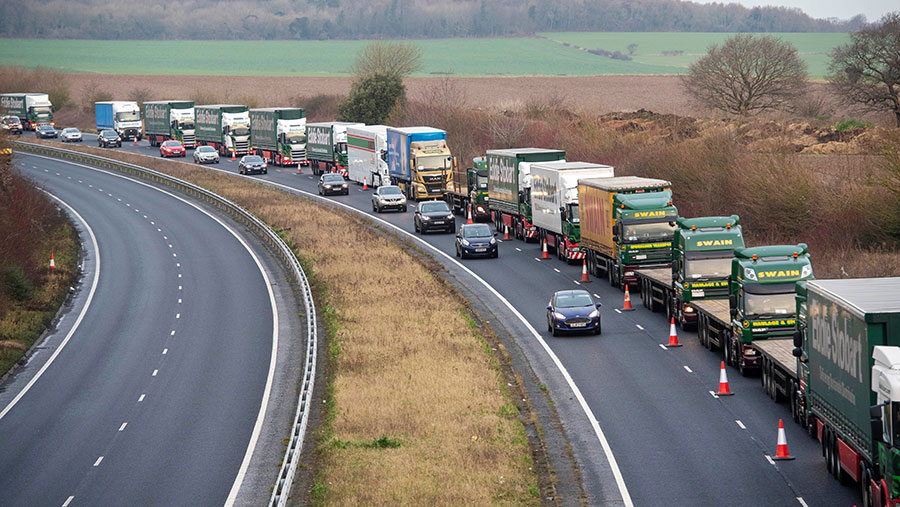Poll: Yellowhammer papers – Project Fear or food for thought?
 © Paul Grover/Shutterstock
© Paul Grover/Shutterstock A no-deal Brexit could trigger fresh food shortages, food price rises, disruption to fuel supplies and major delays at borders, official government documents have warned.
The UK government was forced to release its “Operation Yellowhammer” (PDF) no-deal contingency planning after being defeated by opposition MPs in a vote in parliament on Wednesday (11 September).
However, it must be acknowledged that the five-page document is the government’s “reasonable worst-case planning assumptions” if the UK leaves the European Union without a deal on 31 October.
See also: 10 tips to build a Brexit cash reserve for dairy farmers
The document states that “the agri-food sector will be the hardest hit, given its reliance on highly integrated cross-border supply chains and high tariffs and non-tariff barriers”.
Top three tips to prepare your business for a no-deal Brexit
HMRC has issued advice for farm businesses trading with the EU, if the UK leaves without a deal on 31 October.
- Get an EORI number – Register on Gov.UK for a UK Economic Operator Registration and Identification (EORI) number. Without one, you will not be allowed to move goods into or out of the EU (including the UK).
- Decide whether you are going to manage your customs yourself or whether you are going to get a customs agent, for example, to help you move your food.
- Visit Gov.UK and search for advice on how your farm business will be affected. Apart from standard customs procedures that apply to all goods, live animals, agri-food, is subject to additional regulations that must be complied with. The 60-second checker should highlight the guidance most relevant to you.
But Nigel Farage, the Brexit Party leader, dismissed the papers as “Project Fear Mark II” and he insisted they should be “totally and utterly disregarded”.
Here are the main points in the papers related to the food and farming industry:
- No overall food shortage, but supplies of certain fresh foods “will decrease” and key ingredients “may be in shorter supply”
- Panic-buying could further aggravate food supply problems
- The UK’s ability to prevent animal disease outbreaks could be affected due to reduced supplies of veterinary medicines
- Regional traffic disruption caused by border delays could affect fuel distribution, especially in the South East
- The automatic application of the EU tariff and regulatory requirements for goods entering Ireland will severely disrupt trade
- Lorries may have to wait two-and-a-half days before being able to cross the UK border
- The flow of cross-Channel goods could face significant disruption lasting up to six months.
Industry reaction
The NFU said the documents provide clear evidence to support the union’s own assessment that a no-deal Brexit would be catastrophic and cause severe economic disruption for farm businesses.
NFU chief EU exit and international trade adviser Gail Soutar said: “Our position remains unchanged that any exit from the EU must be smooth and orderly, and it is essential that the Government makes reaching a deal a priority.”
Food and Drink Federation chief executive Ian Wright said the no-deal assessment “lays bare the grisly crisis facing the UK’s food and drink supply chain”.
Vet medicine shortages
Phil Stocker, chief executive of the National Sheep Association (NSA) said the UK was not prepared to cope with a shortage in veterinary medicines and the risks to animal and human health and welfare in the occasion of a disease outbreak, in the event of no deal.
But a government spokesperson said: “We are currently undertaking a review of the reasonable worst case scenario planning assumptions for Operation Yellowhammer and will publish the revised version in due course.”
